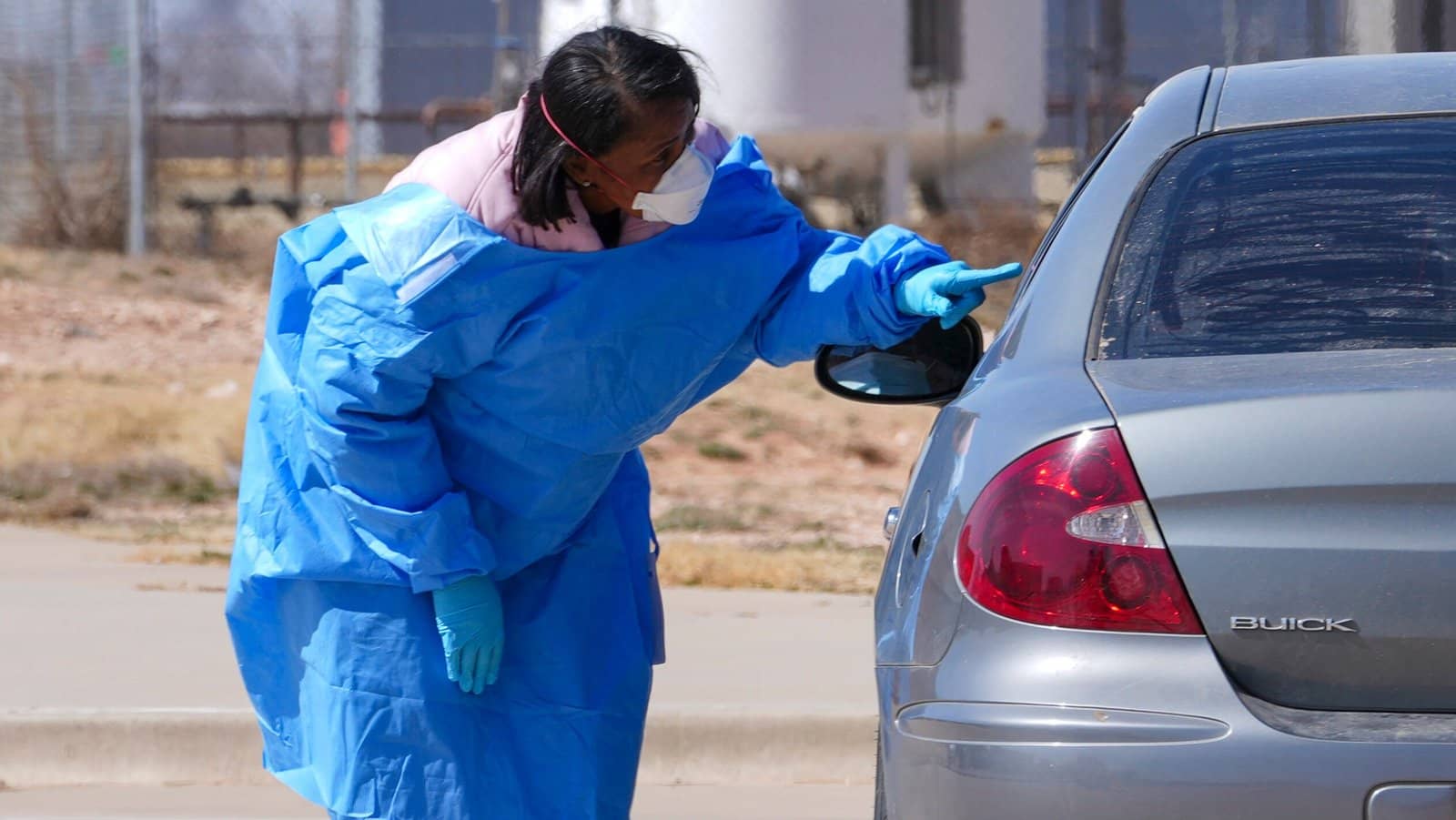OPINION: As maternal mental health plummets, Black mothers face a silent crisis in the overlooked “fourth trimester,” where community and culturally competent care could be the key to saving lives.
Editor’s note: The following article is an op-ed, and the views expressed are the author’s own. Read more opinions on theGrio.
Written by Angela Aina, Mariah Antetokounmpo, Dalvery Blackwell, Abigail Epane-Osuala
Maternal mental health in the U.S. is in a free fall, dropping from 38.4% to 25.8% over the past eight years according to a new JAMA study. Alarmingly, mental health conditions are currently the leading cause of pregnancy-related deaths, accounting for nearly a quarter of all cases.
And Black women bear the brunt of this crisis — not only because of persistent health disparities and stigma, but also due to the lack of community-rooted care designed to support them. For all mothers, mental health risk doesn’t end at birth and we cannot continue to overlook women during one of the most vulnerable and overlooked stages of motherhood: the fourth trimester.
For many Black women, the most isolating and dangerous chapter comes after birth, in this “fourth” trimester. Lack of follow-up care. Being dismissed when asking for help. No community support system. These aren’t the side effects of motherhood. They’re symptoms of a system that routinely overlooks this postpartum period, where too many Black mothers are left to navigate the most vulnerable chapter of their journey alone.
We see it in the research. Postpartum depression is estimated to impact up to 44% of Black mothers. And, although these rates are higher than their white counterparts, they’re less likely to receive a proper diagnosis. On top of that – suicide and overdose are the leading cause of death for women in the first year of pregnancy. Black moms are twice as likely to report suicidal ideations.
We see it firsthand. Our mothers, our sisters, our friends, have all shared stories about the challenges of the postpartum period and the steep emotional cliff it can bring. For many of us, it’s not just something we’ve heard about, it’s something we know deeply and personally.
For Mariah, becoming a mother for the first time came with a frightening preeclampsia diagnosis, followed by a postpartum period marked by emotional isolation and intense depression. Therapy played a role in her healing, but so did something just as powerful: community. Friends, family, and access to culturally competent care helped her navigate the journey. With each child, her confidence grew, and motherhood became not only a source of strength but a pathway to purpose and passion.
For Abigail, the fight for maternal health is also deeply personal. Growing up in Cameroon, West Africa, she remembers a neighbor who was pregnant and excited to give birth. However, the mother and baby never made it home. This was a tragedy that never left Abigail. Years later, as she prepared to give birth herself in the U.S., that memory came rushing back and instilled fear. Though her delivery was safe, she carried a fear that far too many Black mothers know well.
At the heart of maternal health are community, dignity, and trust. These are the values shared by each of our organizations: the Black Mamas Matter Alliance (BMMA), Charles Antetokounmpo Family Foundation (CAFF), GE HealthCare Foundation, and African American Breastfeeding Network. We’re working across the spectrum of maternal health care. Together, we’re committed to supporting moms at every step of the journey. We’re training critical providers like doulas and midwives, funding solutions and supplying vital resources, and standing beside moms in the very communities we live and serve.
But, we cannot do this work alone.
With the ongoing maternal health crisis, we’re reminded that the most effective solutions come from those most impacted, and the best outcomes begin with listening. And, we’re calling on others to join us in this mission.
That means expanding access to doulas and postpartum care, normalizing therapy and rest, supporting each other, and building systems around the needs of Black women, not just the moment of birth.
When we center community, we create the conditions for Black women not just to survive, but to heal, grow, and thrive.
Angela Aina is the Co-Founder and Executive Director of the Black Mamas Matter Alliance, leading national advocacy for Black maternal health. With over 16 years in public health and a background at the CDC, she’s a champion for health equity and Black feminist leadership.
Mariah Antetokounmpo is a mom of four, wife to NBA champion Giannis Antetokounmpo, and a philanthropist committed to creating safe, supportive spaces for women, children, and families to thrive. Through her work at the Charles Antetokounmpo Family Foundation, she has helped lead community initiatives like diaper drives and family resource events, focused on meeting parents where they are and helping them feel seen, supported, and celebrated.
Dalvery Blackwell is a lactation consultant and Co-Founder of the African American Breastfeeding Network, focused on culturally responsive maternal care. She helped launch the WeRISE Doula Program and advocates for Black maternal health in Milwaukee.
Abigail Epane-Osuala is President of the GE HealthCare Foundation and a seasoned HR leader with a 25+ year career. She advises C-suite leaders on people, culture, and transformation across global industries.


